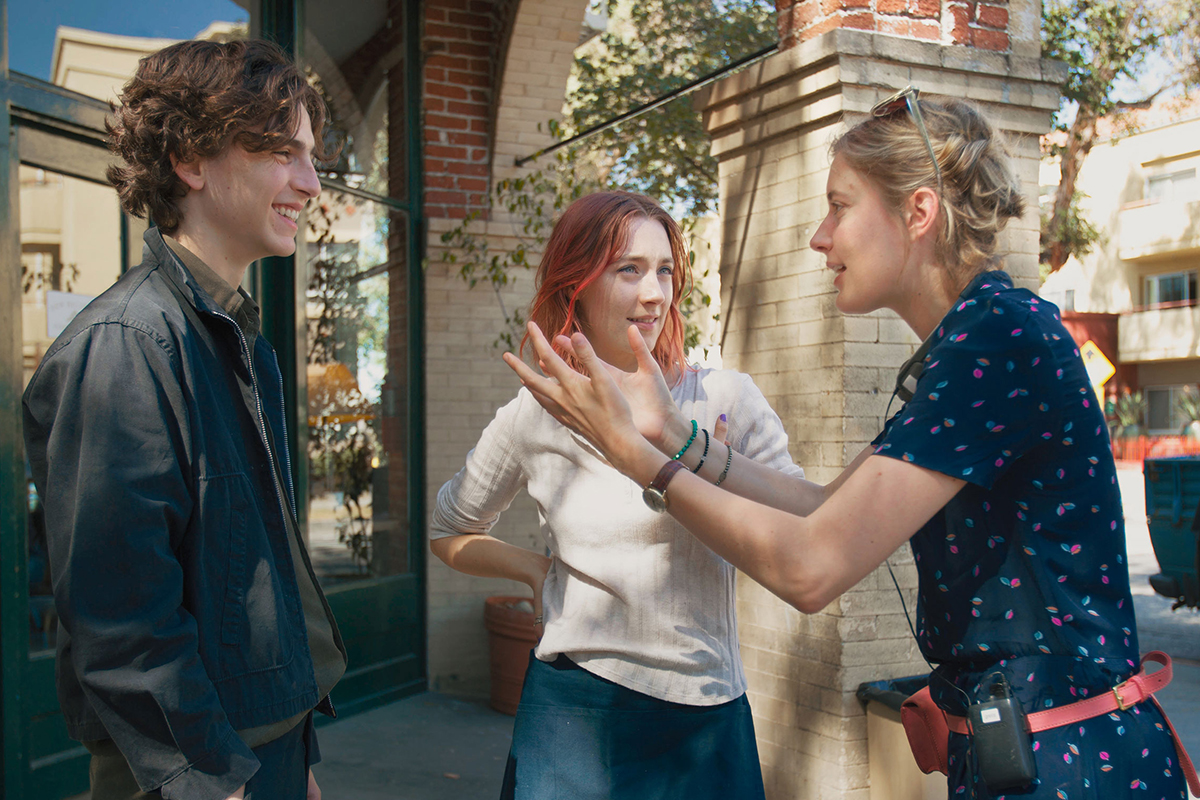It’s something of a vicious circle when it comes to calls for more representation in awards nominations. There are some who will say that the problem lies with the industry, who are not creating enough opportunities for women or people of color, hence the lack of nominations. But when good movies by those diverse groups are ignored, it perpetuates the notion that those individuals don’t have the talent to be on the same playing field as the usual roster of dudes. Well, that spinning cycle of finger pointing is hitting the BAFTAs.
Earlier this week, the nominees for the 2018 British Academy Film Awards landed, and the Best Director category was all dudes. Slighted from a nod was Greta Gerwig for her universally adored “Lady Bird,” though she did manage to score a Best Screenplay nomination. Just a day later, organizers have responded, and have cited the lack of female directed movies as the culprit.
Noting that only 16% of the films eligible for BAFTAs were directed by women, BAFTA Chair Jane Lush said (via Variety), “Of course we want to see women in the best director category. It is a reflection of the industry to a certain extent and we should be doing something about it, and that’s why we have BAFTA Elevate [a program that promotes female directors’ careers]. It’s not about blaming people. It’s about what can we do to make it different.”
Marc Samuelson, chairman of the BAFTA Film Committee, also noted it was a very competitive year and the nominees — Denis Villeneuve, Luca Guadagnino, Christopher Nolan, Guillermo del Toro, Martin McDonagh — are all worthy.
“There are only five nominees. I loved ‘Lady Bird’ and it is a very well-directed film and a superb screenplay, which [Gerwig] was nominated for, but which of the [director] nominations would you drop to put Gerwig or Joe Wright in? I would imagine they had a lot of support, but not quite enough,” he stated. “Having said that, the problem is the problem. There aren’t enough female directors. BAFTA can’t put a voting handicap in so that you favor people. All it can do is dig down into the industry with, for example, Elevate, which was a really important initiative, and Breakthrough Brits and scholarships.”
There’s also another element at work when it comes to female directors, particularly those working in genres that aren’t generally perceived as being flash, and that’s best explained by critic Guy Lodge:
https://twitter.com/GuyLodge/status/951146729843372032
https://twitter.com/GuyLodge/status/951147352550727680
https://twitter.com/GuyLodge/status/951148747332956161
https://twitter.com/GuyLodge/status/951150289658183682
https://twitter.com/GuyLodge/status/951151442273988614
https://twitter.com/GuyLodge/status/951157026800963584
Essentially, a combination of sexism and genre bias is also part of this equation. This all part of decades of certain ways of thinking when it comes not just the craft of directing, but also how women approach the medium. It’s outdated and old-fashioned, and while #MeToo continues to go strong, the larger battle ahead is figuring how to to dismantle the structures and entrenched ideas that keep perpetuating the same biases.






“But which of the [director] nominations would you drop to put Gerw-”
Martin McDonough. Done. That was easy.
I can see that
Did lodge answer which director should be dropped in any other tweets??